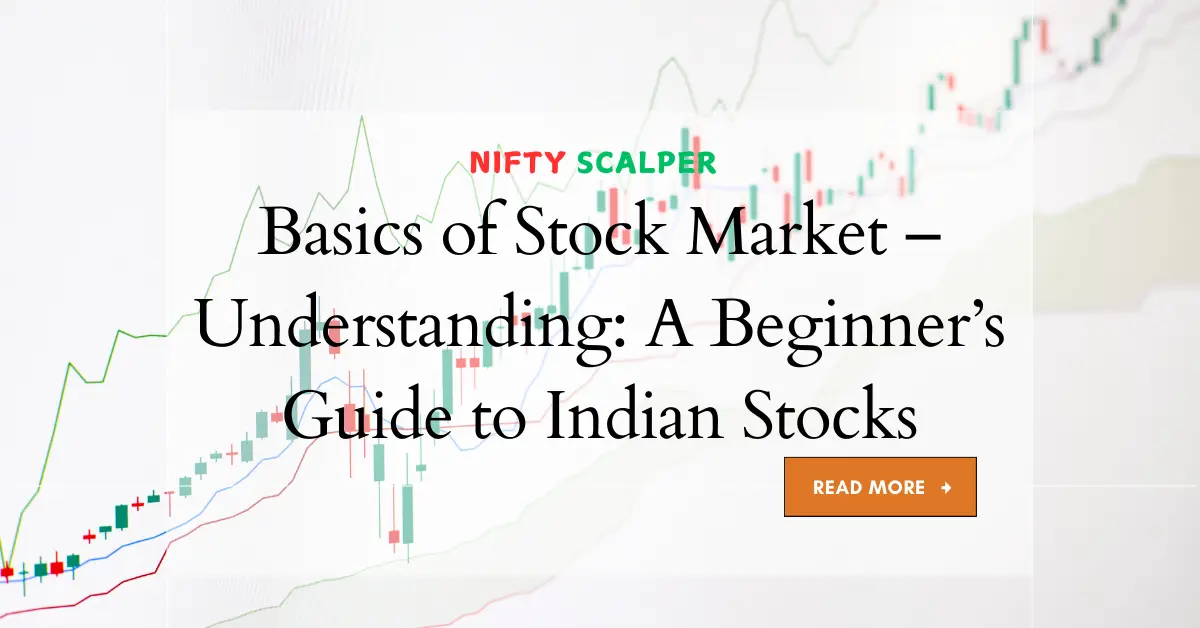Introduction
The stock market is a dynamic platform that allows individuals and businesses to invest and grow wealth. For beginners in India, understanding the fundamentals is the first step toward financial freedom. The Indian stock market, driven by global trends and local factors like government policies, offers unique opportunities for both short-term and long-term investors. (Basics of Stock Market)
What is a Stock Market?
The stock market serves as a marketplace where shares of publicly listed companies are bought and sold. In India, there are two major stock exchanges:
- Bombay Stock Exchange (BSE): One of the oldest stock exchanges in Asia, known for its flagship index, Sensex.
- National Stock Exchange (NSE): A modern, tech-driven exchange featuring the Nifty 50 index.
Primary Market: Where companies issue new shares to the public through Initial Public Offerings (IPOs).
Secondary Market: Where investors trade shares among themselves.
Key Market Participants
- Retail Investors: Individual investors like you and me.
- Institutional Investors: Large entities like mutual funds, insurance companies, and pension funds.
- Foreign Institutional Investors (FIIs): Investors from outside India who contribute significantly to market movements.
- Domestic Institutional Investors (DIIs): Indian financial institutions that influence the market locally.
- Regulator (SEBI): The Securities and Exchange Board of India ensures market transparency and investor protection.
This blogs includes only basics of stock market. for detailed knowledge please other blogs
Stock Market Terminology
- Equity: Ownership in a company represented by shares.
- IPO (Initial Public Offering): The first time a company offers its shares to the public.
- Market Capitalization: The total value of a company’s shares (Market Cap = Share Price × Total Shares).
- Dividends: Profits distributed to shareholders periodically.
- Indices (Sensex & Nifty 50): Benchmarks indicating the market’s overall performance.
How Does the Stock Market Work?
Investors place buy or sell orders through brokers.
Orders are matched based on price and quantity.
The stock price moves according to demand and supply dynamics.
Market timings in India:
- Pre-Opening Session: 9:00 AM – 9:15 AM
- Normal Trading Session: 9:15 AM – 3:30 PM
- Post-Closing Session: 3:30 PM – 4:00 PM
Types of Investment Instruments
- Equity Shares: Direct ownership in companies.
- Bonds/Debentures: Fixed-income securities offering lower risk.
- Mutual Funds/ETFs: Pooled investments for diversification.
- Derivatives (Futures & Options): Contracts based on stock prices for speculative or hedging purposes.
Also check – Sector-wise Stock List
Getting Started
- Open a Demat & Trading Account:
a. A Demat account holds your shares electronically.
b. A trading account is used to place buy/sell orders.
c. Popular brokers: Zerodha, Upstox, ICICI Direct, Angel One. - Choose the Right Broker:
a. Compare brokerage fees, trading platforms, and customer support. - Understand Costs:
a. Brokerage charges.
b. Transaction charges.
c. SEBI fees and GST.
Tips for Beginners
- Start small and gradually increase your investments.
- Diversify across sectors to reduce risks.
- Avoid following herd mentality; research before investing.
- Monitor your investments regularly but don’t panic over short-term fluctuations.
If yoy like this blogs, share with your friends and family.
View posts by month
View latest posts
- Leveraging Events: Trading Options Around Earnings and Economic Releases
- Long Call and Long Put Options : Strategies for Capitalizing on Stock Trends
- The Ultimate Guide to Equity Swing Trading in the Indian Stock Market
- Investment Tools for Stock Market : Exploring Apps and Platforms
- Market Regulations: Understanding SEBI Guidelines, Investor Protections, and Stock Exchanges in India




